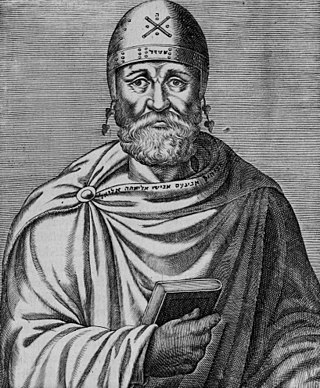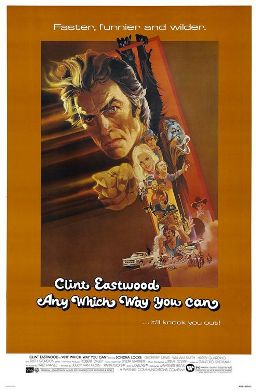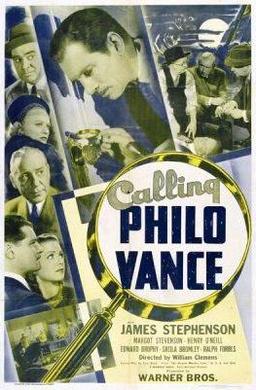Related Research Articles

Gaius Caesar Augustus Germanicus, better known by his nickname Caligula, was Roman emperor from AD 37 until his assassination in AD 41. He was the son of the Roman general Germanicus and Augustus' granddaughter Agrippina the Elder, members of the first ruling family of the Roman Empire. He was born two years before Tiberius was made emperor. Gaius accompanied his father, mother and siblings on campaign in Germania, at little more than four or five years old. He had been named after Gaius Julius Caesar, but his father's soldiers affectionately nicknamed him "Caligula".

Philo Taylor Farnsworth was an American inventor and television pioneer. He made the critical contributions to electronic television that made possible all the video in the world today. He is best known for his 1927 invention of the first fully functional all-electronic image pickup device, the image dissector, as well as the first fully functional and complete all-electronic television system. Farnsworth developed a television system complete with receiver and camera—which he produced commercially through the Farnsworth Television and Radio Corporation from 1938 to 1951, in Fort Wayne, Indiana.

Philo of Alexandria, also called Philō Judæus, was a Hellenistic Jewish philosopher who lived in Alexandria, in the Roman province of Egypt.
A Time for Judas is a historiographic metafiction novel by Canadian author Morley Callaghan, published by Macmillan of Canada in 1983.
Sanchuniathon, also known as Sanchoniatho the Berytian, was a Phoenician author. His three works, originally written in the Phoenician language, survive only in partial paraphrase and a summary of a Greek translation by Philo of Byblos recorded by the Christian bishop Eusebius. These few fragments comprise the most extended literary source concerning Phoenician religion in either Greek or Latin: Phoenician sources, along with all of Phoenician literature, were lost with the parchment on which they were written.
Philo of Byblos, also known as Herennius Philon, was an antiquarian writer of grammatical, lexical and historical works in Greek. He is chiefly known for his Phoenician history assembled from the writings of Sanchuniathon.
Philo of Larissa was a Greek philosopher. It is very probable that his actual name was Philio - with a second iota. He was a pupil of Clitomachus, whom he succeeded as head of the Academy. During the Mithridatic Wars which would see the destruction of the Academy, he travelled to Rome where Cicero heard him lecture. None of his writings survive. He was an Academic sceptic, like Clitomachus and Carneades before him, but he offered a more moderate view of skepticism than that of his teachers, permitting provisional beliefs without certainty.
Philo of Byzantium, also known as Philo Mechanicus, was a Greek engineer, physicist and writer on mechanics, who lived during the latter half of the 3rd century BC. Although he was from Byzantium he lived most of his life in Alexandria, Egypt. He was probably younger than Ctesibius, though some place him a century earlier.

Every Which Way but Loose is a 1978 American action comedy film released by Warner Bros. starring Clint Eastwood in an uncharacteristic and offbeat comedy role. It was produced by Robert Daley and directed by James Fargo. Eastwood plays Philo Beddoe, a trucker and bare-knuckle brawler roaming the American West in search of a lost love while accompanied by his brother/manager Orville and his pet orangutan Clyde. Philo encounters a wide assortment of characters, including a pair of police officers and a motorcycle gang who pursue him for revenge.
Taautus of Byblos, according to the Phoenician writer Sanchuniathon, was the son of Misor and the inventor of writing, who was bequeathed the land of Egypt by Cronus.

The Dragon Murder Case is a novel in a series by S. S. Van Dine about fictional detective Philo Vance. It was also adapted to a film version in 1934, starring Warren William as Vance.

Any Which Way You Can is a 1980 American action comedy film directed by Buddy Van Horn and starring Clint Eastwood, with Sondra Locke, Geoffrey Lewis, William Smith, and Ruth Gordon in supporting roles. The film is the sequel to the 1978 hit comedy Every Which Way but Loose. The cast of the previous film return as Philo Beddoe (Eastwood) reluctantly comes out of retirement from underground bare-knuckle boxing to take on a champion hired by the mafia, who will stop at nothing to ensure the fight takes place, while the neo-Nazi biker gang Philo humiliated in the previous film also comes back for revenge.
Philo Alphonso Wallace is a Barbadian cricketer who played for the West Indies.
The Alexandrian pogrom, or Alexandrian riots were attacks directed against Jews in 38 CE in Roman Alexandria, Egypt.
William Philo was a British Middleweight professional boxer who competed in the early twentieth century. He won a bronze medal in Boxing at the 1908 Summer Olympics, losing against Reginald Baker in the semi-finals. He served in the British Army with the 8th Battalion, Royal Fusiliers and was posted missing, aged 34, during the Battle of the Somme in France on 7 July 1916 as a Company Serjeant Major. His remains were not recovered, and his name is recorded on the Thiepval Memorial.
Faustinopolis, also Colonia Faustinopolis and Halala, was an ancient city in the south of Cappadocia, about 20 km south of Tyana. It was named after the empress Faustina, the wife of Marcus Aurelius, who died in a village there. Her husband, by establishing a colony in it, raised it to the rank of a town under the name of Faustinopolis. Hierocles assigns the place to Cappadocia Secunda, and it is also mentioned in the Antonine and Jerusalem Itineraries. The town was close to the defiles of the Cilician Gates, and was likely situated at modern-day Başmakçı, Niğde Province, Turkey. Following the Muslim conquests and the subsequent Arab raids, the site was abandoned for the nearby fortress of Loulon.

Calling Philo Vance is a 1940 American mystery/comedy film released by Warner Bros. and starring James Stephenson as the dilettante detective Philo Vance, his only appearance as the character; Margot Stevenson co-stars. The film also features Henry O'Neill, Edward Brophy, Sheila Bromley and Ralph Forbes. It was directed by William Clemens from a screenplay by Tom Reed, based on the 1933 novel The Kennel Murder Case by S.S. Van Dine, which had been made into a film in 1933, starring William Powell and Mary Astor.

The Greene Murder Case is a 1929 talking film produced and released by Paramount Pictures and based on the novel The Greene Murder Case, by S.S. Van Dine. The novel had been published a year before this film was made. It stars William Powell in his second Philo Vance outing. Florence Eldridge and Jean Arthur costar.

Philo Vance Returns is a 1947 American mystery film directed by William Beaudine and starring William Wright, Vivian Austin and Leon Belasco. It is one of a series of films featuring private detective Philo Vance.

Philo is an American internet television company based in San Francisco, California. First founded at Harvard University in 2010 by Tuan Ho and Nicholas Krasney, investors in the company include HBO, Andrew McCollum, and Mark Cuban. The company and its service is named in honor of one of the pioneering engineers of television, Philo T. Farnsworth. As of 2021, their OTT streaming television service has over 800,000 subscribers.
References
- ↑ St. Philo and Agathopodes Catholic Online